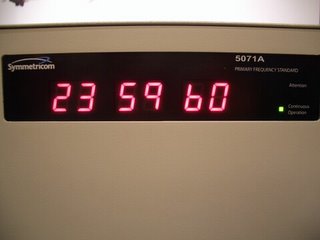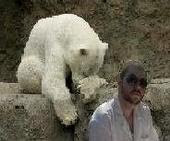2006 to be Delayed by Leap Second?

The U.S. Naval Observatory says a leap second will be inserted in the world's clocks just before midnight Greenwich mean time on New Year's Eve.
That means 7 p.m. Eastern time on Dec. 31 will occur one second later than it would have otherwise.
Leap seconds are occasionally needed because modern atomic clocks are more precise than the rotation of the Earth, which can be inconsistent.
The rotation of the Earth has been slowing down, so leap seconds keep the clocks and the Earth from getting out of synch with one another.
This will be the 23rd leap second that has been inserted since 1972. The last one was inserted seven years ago.
Historically, leap seconds have been inserted about every 18 months. However, the Earth's rotation rate is unpredictable in the long term, so it is not possible to predict the need for them more than six months in advance. Between January 1972 and December 1998, the International Earth Rotation ande Referece Service gave instructions to insert a leap second on 22 occasions. The interval between Dec 31, 1998 and Dec 31, 2005, the most recent leap second, is the longest period since the system was introduced without a leap second.
This years leap second is a positive one, meaning one more second will be added at 6:59:60 PM.
Note that leap seconds have nothing to do with leap years.


No comments:
Post a Comment